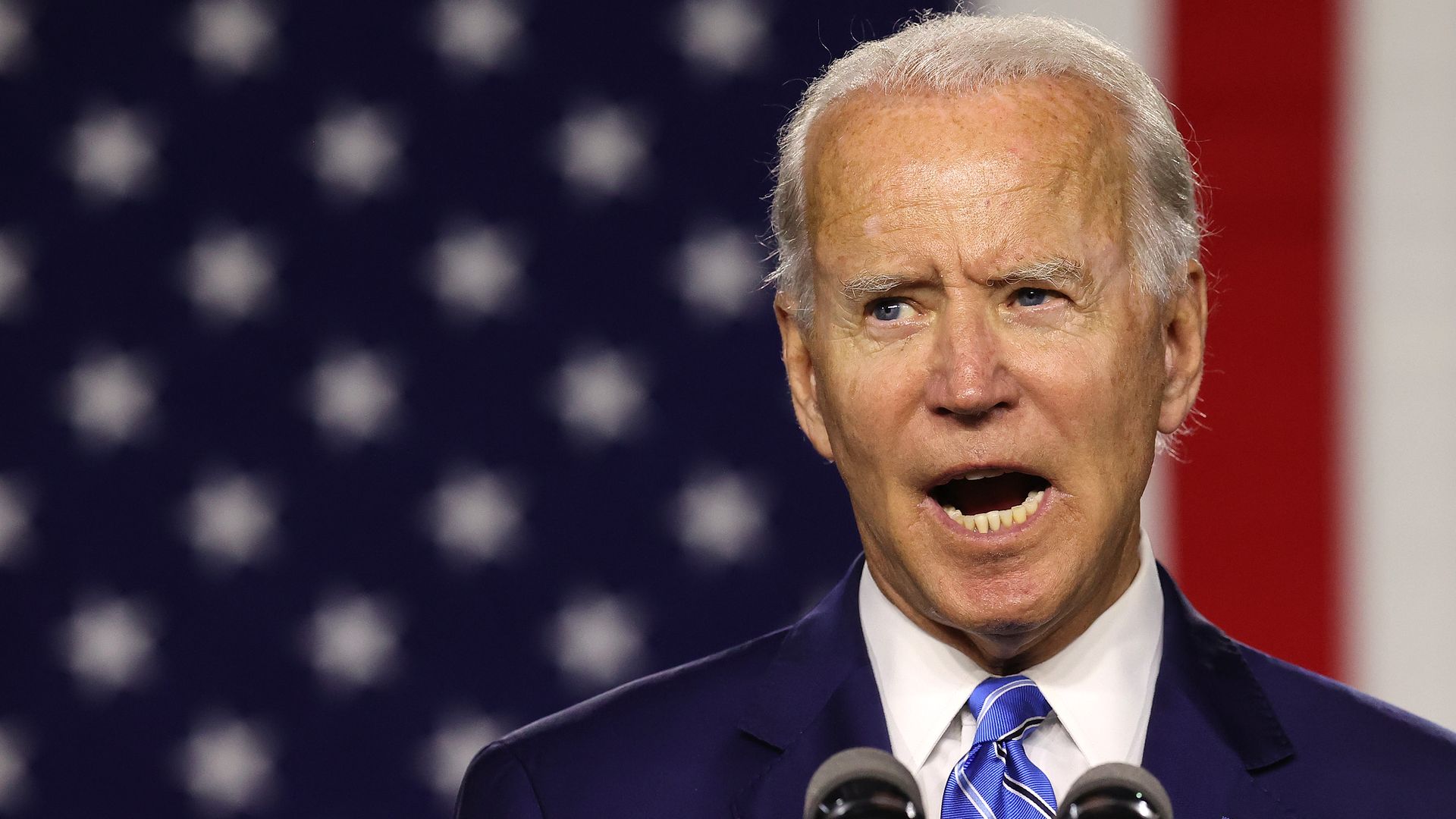Jul 20, 2020 - Politics & Policy
Biden vows to end Trump travel ban on Muslim-majority nations if elected
Add Axios as your preferred source to
see more of our stories on Google.

Former Vice President Joe Biden speaks at the Chase Center in Wilmington, Del., on July 14. Photo: Chip Somodevilla/Getty Images
